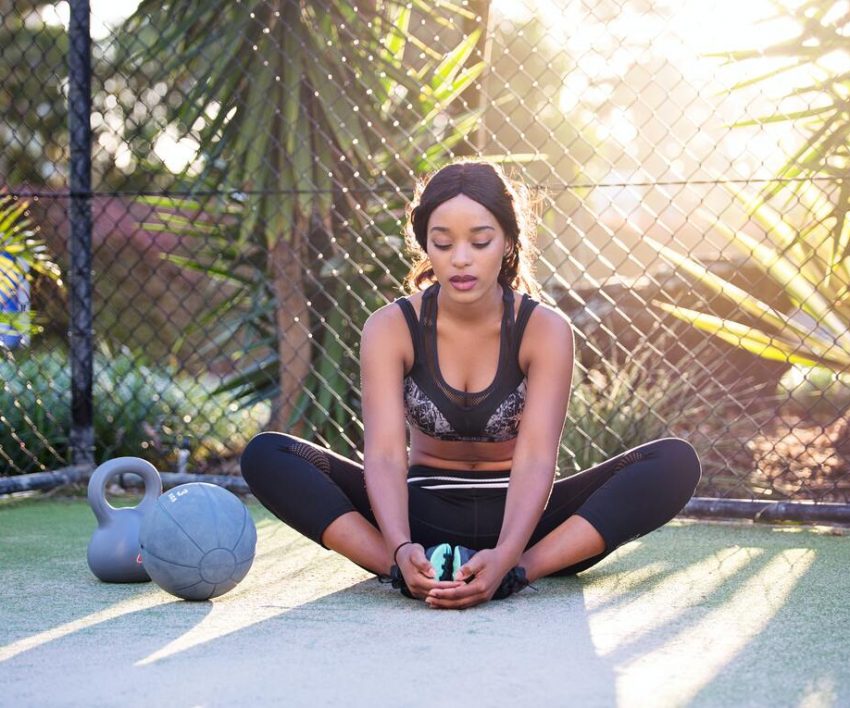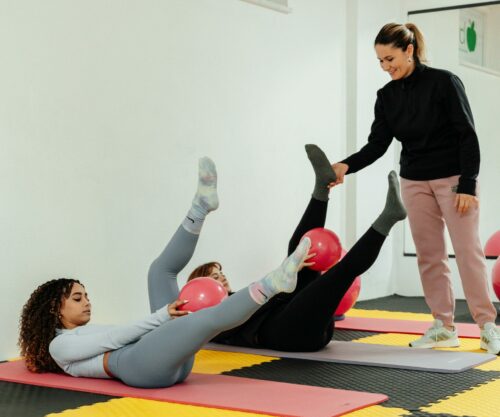
The need for female athletes to prioritise their mental health in the realm of sports is fundamental. Although the strain of competing, winning, and maintaining physical health might be demanding, neglecting your mental health can have serious repercussions.
This article aims to encourage female athletes to pace themselves through the year’s end by offering tips on how to care for their mental health in addition to their physical training.
In recent years we have witnessed many female sports stars take ownership of their mental health from the likes of Japanese professional tennis player Naomi Osaka who announced she would be skipping press interviews for the 2021 French Open in the interest of protecting her mental health.
The same year, American gymnast Simone Biles – the most decorated gymnast in history, with seven Olympic medals – withdrew from the Tokyo Olympic Games, “to focus on my mental health and not jeopardise my health and well-being,” she said at the time.
Dr. Kirsten van Heerden, a performance psychologist and former South African swimmer, says mental health is a problem that affects athletes and high-performing individuals around the world.
While speaking at Momentum’s inaugural Women Who Make Moves in Sports Summit, Dr Van Heerden highlighted the connection between mental health along with achievements, she also gave sportswomen crucial tools to enable them in commercialising their personal brands to better attract sponsorship and endorsement possibilities.
There are hidden tensions associated with career longevity and the financial uncertainty that can result from a short-term career, and many athletes battle with these issues in addition to the difficulties that come with always playing at their best. Dr. Van Heerden frequently encounters athletes struggling with identity issues as well as financial difficulties in her practice. She notes that 45% of athletes struggle to find their identity outside of sport, while 50% of athletes retire earlier than intended. Within five years of retiring, an astonishing 70% of athletes file for bankruptcy or experience significant financial hardship because they lack the abilities to succeed in business.
The mental tools you need to cope
The truth of being an athlete, says Dr. Van Heerden, is that your career will come to an end. As such, you should make the most of the time you have left and use it to your fullest potential while also preparing for the future. The development of a solid mental foundation is part of this. Three strategies she offers to deal with pressure are as follows:
-
Don’t confuse who you are with what you do
Everyone recognises you as an athlete, but they don’t really care about you personally; they simply want you to perform, says Dr Van Heerden. She continues by saying that everyone is interested in you and has an opinion on how you play. It’s simple to become immersed in that, to feel those voices becoming overwhelming and obtrusive, to lose your sense of worth. But never forget: You are valuable as a person
is not reliant on how well you perform. You have a public persona and a private identity, the latter of which being the place where you are most comfortable. It’s crucial to have a close group of friends that care about you, know you well, and can help you keep these two apart. The people in your circle, including your family, friends, and/or coach, are the ones who truly understand your situation. They will assist you in keeping a healthy balance in how you view yourself because they are aware of both who you are as a player and as a person.
-
Focus on your goals and performance – not the attention you get
Being thrust into the spotlight and developing a public persona don’t have to be painful or difficult; in fact, it’s crucial to be noticeable when attempting to construct a successful sporting career. However, the unexpected influx of media attention might be unsettling and detract from the main objective. You may maintain a strong and healthy mental state by focusing on your own objectives and performance, both on and off the field, rather than the expectations and judgments of others.
-
Don’t trust yourself only – get the best team around you
Athletes desire the best coaching, facilities, and training, but all too frequently they seek financial advice from their family or friends. The best teams aren’t always put in place to take care of their financial stability. However, since there is a great difference between making money and maintaining it, you must enlist the help of professionals to manage your finances and business.
Building the appropriate team around you is essential, says Momentum Financial Adviser Janine Horn. Join forces with professionals, such as an experienced financial advisor or business coach.
“It is your responsibility to keep an eye on all your finances, but lean on professionals who will help you create sustainability in your career, safeguard your mental health and guide you on your journey to success.”




